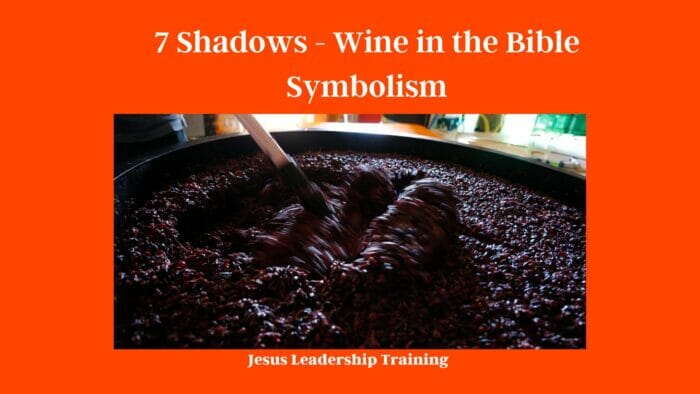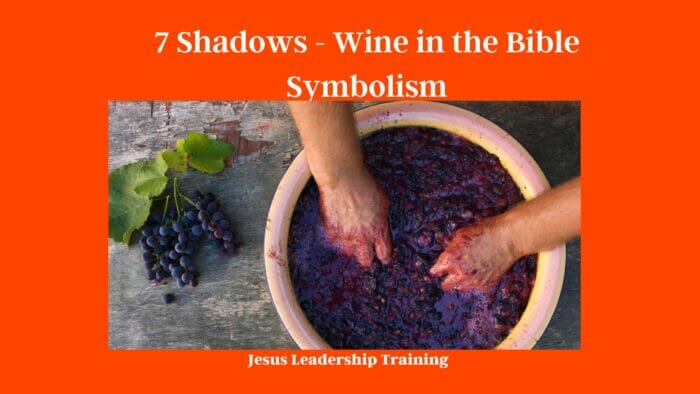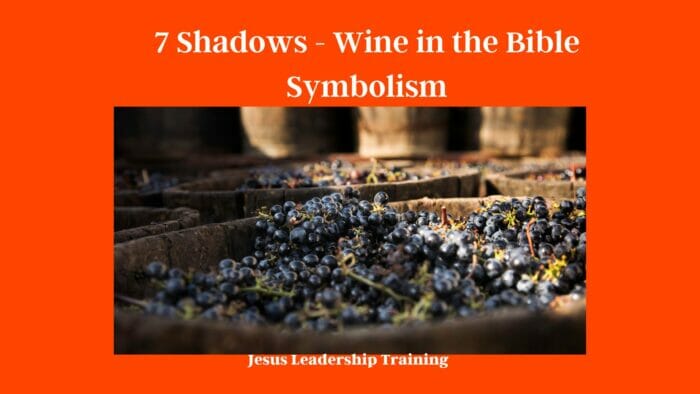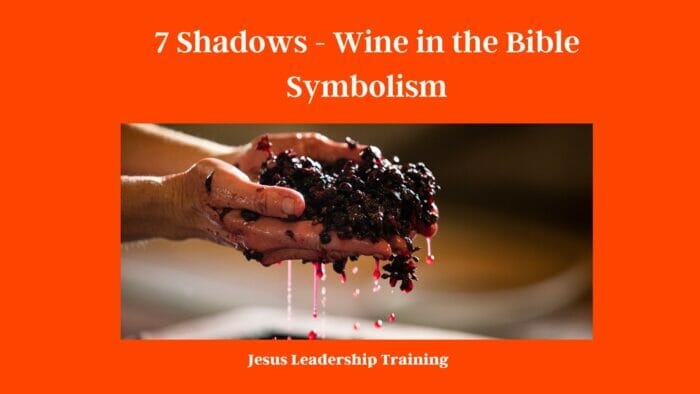Spiritual Meaning of Wine – Discover the profound symbolism of wine in the Bible and its spiritual significance. This comprehensive article delves into the various biblical references to wine, its deeper meanings, and the lessons it imparts. Explore the rich tapestry of religious and cultural contexts that surround wine in the Bible symbolism.
Table of Contents
Spiritual Meaning of Wine
Throughout history, wine has held a special place in the hearts of humanity. Beyond its culinary delight, it has played a significant role in various cultures and religions. Among the many sacred texts, the Bible, in particular, contains intriguing references to wine, offering profound symbolism and spiritual insights. In this article, we embark on a journey to explore the diverse ways wine is portrayed in the Bible and its deeper spiritual meanings.
Below is a table showing the symbolism of wine in the Bible:
| Symbolism of Wine in the Bible | Bible References | Description |
|---|---|---|
| Celebration and Joy | Psalm 104:15; Isaiah 55:1; Ecclesiastes 3:13; John 2:1-11 | Wine is often associated with celebrations and joyous occasions, symbolizing God’s blessings and abundance. It represents the enjoyment of life and the goodness of God’s creation. |
| Covenant and Sacrifice | Exodus 29:38-42; Leviticus 23:13; Matthew 26:27-29; 1 Corinthians 11:25-26 | Wine has been used in religious rituals and ceremonies, signifying God’s covenant with His people and representing the blood of sacrifice. It is a symbol of unity with God and one another. |
| Spiritual Transformation | Ephesians 5:18; Acts 2:1-4; Galatians 5:22-23; 1 Corinthians 12:13 | Wine is associated with the Holy Spirit and spiritual transformation. It symbolizes the filling and empowering of the Spirit, bringing forth spiritual gifts and fruits in believers’ lives. |
| Cleansing and Healing | Proverbs 3:7-8; Isaiah 1:18; Luke 10:34; 1 Timothy 5:23 | Wine is sometimes used metaphorically for healing and cleansing. It symbolizes the restoration of body, mind, and soul, as well as the forgiveness of sins through the blood of Christ. |
| Joyful Worship and Praise | Psalm 63:3; Psalm 104:14-15; Isaiah 25:6; Revelation 19:6-9 | Wine is associated with joyful worship and praise to God. It symbolizes the overflowing gladness and thanksgiving offered to God, especially during times of celebration and feasting. |
| Intimacy and Union with God | Song of Solomon 1:2; Song of Solomon 4:10; John 15:5; Revelation 3:20 | Wine is used metaphorically in the Song of Solomon to represent the deep intimacy and love between God and His people. It symbolizes the communion and union believers have with God. |
| Divine Wisdom and Revelation | Proverbs 9:1-6; Matthew 13:52; Luke 22:20; Ephesians 1:17-18 | Wine is sometimes used symbolically to represent divine wisdom and revelation. It signifies the knowledge and understanding of God’s truth and the mysteries of His kingdom. |

The symbolism of wine in the Bible is rich and varied, representing different aspects of spiritual life and the relationship between God and His people. From joy and celebration to covenant and spiritual transformation, wine serves as a powerful symbol throughout the Scriptures.
Wine in the Bible Symbolism: A Divine Gift
Wine has been bestowed with deep symbolism in the Bible, often representing divine blessings and favor. It frequently symbolizes joy, abundance, and prosperity, serving as a metaphor for God’s abundant grace upon His people.
The First Miracle: Turning Water into Wine
One of the most famous biblical stories involving wine is the first miracle of Jesus at the Wedding at Cana. Here, we witness Jesus transforming water into wine, underscoring his divine power and the celebration of God’s blessings in abundance.
Wine as a Symbol of Joy and Celebration
In various biblical passages, wine is depicted as a symbol of joy and celebration. It embodies the concept of rejoicing and commemorating special occasions, emphasizing the significance of gratitude and unity.

The Symbolism of Wine in the Passover: Liberation and Renewal
During the Passover, wine takes center stage, representing liberation and renewal. It commemorates the Israelites’ escape from slavery in Egypt and the beginning of a new life and covenant with God.
The Dual Nature of Wine: Blessings and Warnings
While wine is often associated with blessings, the Bible also issues warnings about its misuse. It emphasizes the importance of temperance and self-control, cautioning against overindulgence and the negative consequences of drunkenness.
9 Spiritual Meanings of Wine
Symbol of Celebration: In many spiritual and religious traditions, wine symbolizes celebration and joy. It is often used in rituals and ceremonies to mark special occasions and moments of gratitude.
Symbol of Abundance: Wine is associated with abundance and blessings in various cultures. It represents the richness of life and the blessings that come from the Divine.
Symbol of Transformation: The process of making wine involves fermentation, which symbolizes transformation and change. In a spiritual context, wine can represent the transformative power of faith and spiritual growth.
Symbol of Communion: In Christianity, wine is used in the sacrament of Communion to symbolize the blood of Christ. It represents the unity of believers and their connection to the divine.
Symbol of Spiritual Nourishment: Wine has been seen as a source of spiritual nourishment in different cultures. It can symbolize the spiritual sustenance that comes from connecting with the divine.
Symbol of Sacrifice: Wine has been offered as a symbol of sacrifice in religious rituals, representing the offering of one’s best to the divine.
Symbol of Intoxication: While excessive consumption of wine can lead to intoxication, in a spiritual context, it may symbolize the feeling of being spiritually elevated or connected to a higher state of consciousness.
Symbol of Joy and Gladness: Wine is often associated with feelings of joy, gladness, and merriment. It can symbolize the spiritual happiness that comes from being in harmony with one’s faith.
Symbol of Spiritual Cleansing: Wine has been used in some spiritual traditions for purification and cleansing purposes, symbolizing the removal of impurities and negative energies. Symbol of Divine Presence: In some spiritual practices, wine is used as an offering to invite the presence of the divine into a space or ceremony.
It’s essential to understand that the spiritual meaning of wine can vary across different cultures, religions, and belief systems. The interpretations mentioned above are not exhaustive and may differ based on individual beliefs and contexts. As with any symbolic representation, the spiritual meaning of wine is subjective and can carry diverse significance for different individuals and communities.

Types Wine in the Bible
In the Bible, wine is mentioned numerous times, and different types of wine are referred to. Here is a list of some of the types of wine mentioned in the Bible:
- New Wine: This refers to freshly pressed grape juice that is still fermenting. It is often used to symbolize blessings, abundance, and the joy of God’s favor (Joel 2:24; Acts 2:13).
- Aged Wine/Old Wine: This refers to wine that has been allowed to age and mature. It is often associated with wisdom and is used in parables and teachings (Luke 5:39).
- Strong Wine: Also known as “strong drink” in some translations, it refers to wine with a higher alcohol content. In the Bible, strong wine is mentioned concerning warnings about its excessive consumption (Proverbs 20:1; Isaiah 5:11).
- Mixed Wine: This refers to wine that is mixed with spices or other ingredients to enhance its flavor. It is mentioned in the context of celebrations and feasts (Isaiah 5:22; Proverbs 23:30).
- Fermented Wine: This is the general term used for wine that has completed the fermentation process. It is the most common type of wine mentioned in the Bible and is used in various contexts, including as offerings and in celebrations (Ezra 6:9; Nehemiah 10:39).
- Red Wine: This is wine made from red or purple grapes, and it is mentioned in various passages throughout the Bible (Proverbs 23:31; Zechariah 9:17).
- White Wine: This refers to wine made from white grapes. It is also mentioned in the Bible in association with blessings and prosperity (Genesis 27:28; Zechariah 9:17).
- Mixed Wine (Mingled Wine): This term is used to describe wine that has been diluted or mixed with water. It is mentioned in the context of ceremonial offerings and libations (Psalm 75:8; Proverbs 9:2).
- Wine of Sodom: This term is used metaphorically to describe something that is detestable or corrupt. It is mentioned in the context of God’s judgment (Deuteronomy 32:32; Isaiah 1:10).
- Vinegar: Though not technically a type of wine, vinegar is mentioned in the Bible as a product of fermented wine. It is used in various contexts, including during the crucifixion of Jesus (Matthew 27:48; John 19:29).
It’s important to note that wine in biblical times may have been different from modern wine due to various factors, including the methods of production and preservation. The symbolism and cultural significance of wine in the Bible make it a prevalent motif throughout the scriptures.
Was Wine in the Bible same as Today
Today: Wine production is a specialized industry, and winemakers often follow specific scientific principles to ensure desired flavors and characteristics. Different types of wine, such as red, white, rosé, and sparkling, are produced using specific grape varieties and fermentation methods.
Bible: In biblical times, wine production was more basic and natural. Grapes were typically crushed by foot, and the juice was collected in clay jars. The fermentation process would occur naturally with the help of wild yeasts present on the grape skins.
Bible: Ancient winemaking was less controlled, resulting in variations in taste and alcohol content. Wine was often mixed with water and spices, and there were no modern techniques for aging or preserving wine.
Alcohol Content | Today: Modern wine has a standardized alcohol content, usually ranging from 9% to 16% alcohol by volume (ABV) depending on the type of wine. Winemakers carefully monitor and control the fermentation process to achieve a consistent alcohol level.
Today: Wine is primarily consumed for its taste, aroma, and as an accompaniment to food. It is widely enjoyed as a social beverage and is part of various cultural and culinary experiences.
Bible: In the Bible, wine was generally much lower in alcohol content compared to modern wine. Fermentation was not as controlled, and alcohol levels could vary widely.
|Bible: Wine in biblical times had a prominent role in various religious ceremonies and was often offered as a libation or offering to God.
Symbolism and Use | Today: Wine is often associated with celebrations, social gatherings, and enjoyment. It can symbolize refinement, culture, and conviviality.
Today: Wine is also used in religious rituals, such as the Christian Eucharist or Jewish Kiddush, symbolizing the blood of Christ and the blessings of God.
Bible: Wine had various symbolic meanings in the Bible, representing blessings, joy, and abundance. It was used in religious offerings, feasts, and special occasions.
Bible: The Bible also presents warnings against excessive consumption of wine and the dangers of drunkenness.
It’s important to recognize that the cultural, technological, and symbolic contexts of wine have evolved significantly from biblical times to the present day. While the essential character of wine as a beverage made from fermented grapes remains the same, the methods of production, alcohol content, and the purposes for which wine is used have undergone considerable changes over the centuries.
Wine in the Bible Symbolism: A Testament to Love and Friendship
Wine, in the context of biblical symbolism, is portrayed as a testament to love and friendship. It serves as a bonding agent, bringing people together, and fostering deep connections among individuals.
Wine and Spiritual Transformation
In the Bible, wine can represent spiritual transformation. Just as grapes undergo a transformation to become wine, individuals may undergo a profound change through their spiritual journey.
The Symbolic Parallels of Wine and Blood
In the New Testament, the symbolism of wine becomes intertwined with that of blood, especially during the Last Supper. This connection highlights the sacrificial nature of Christ’s crucifixion and the concept of redemption.
Wine as a Symbol of the Holy Spirit
Within the biblical context, wine is sometimes likened to the Holy Spirit, symbolizing the divine presence and the source of spiritual strength and guidance.
The Vine and the Branches: Spiritual Unity
The metaphor of the vine and the branches, frequently mentioned in the Bible, portrays the unity between believers and Christ. Just as branches derive their sustenance from the vine, Christians draw spiritual sustenance from their relationship with Christ.
Wine Press Symbolism: Trials and Triumphs
The image of a winepress is used metaphorically in the Bible to represent trials, struggles, and challenges. It signifies that through difficult times, individuals can be refined and emerge stronger, much like the process of making wine.
Wine as a Symbol of Healing and Restoration
In certain biblical passages, wine is associated with healing and restoration. It signifies the renewal of body, mind, and spirit, reflecting God’s compassion and ability to restore what was lost.
Wine in Proverbs: Wisdom and Folly
The book of Proverbs offers numerous references to wine, highlighting its association with wisdom when consumed responsibly and its dangers when indulged recklessly.
Wine and the Eucharist: A Sacred Ritual
In Christianity, wine plays a crucial role in the sacrament of the Eucharist, symbolizing the blood of Christ and fostering a deeper connection between believers and their faith.
The Abundance of Wine: Promises of Blessings
The Bible often depicts wine as a representation of divine blessings and the abundance of God’s favor upon His people.
FAQs:
Q: Is wine essential for religious rituals? A: While wine holds significance in certain religious rituals, it is not considered an obligatory element. Its symbolism and use vary across different faiths and traditions.
Q: Can wine consumption be part of a spiritual practice? A: For some individuals, moderate and mindful wine consumption can be part of their spiritual practice, fostering a sense of connection and celebration.
Q: Does the Bible explicitly promote wine consumption? A: The Bible does not strictly promote or discourage wine consumption. It emphasizes the importance of moderation and discernment.
Q: How does wine relate to the concept of joy in the Bible? A: Wine is often linked to joy in the Bible, representing the abundance of blessings and God’s favor, which elicits feelings of joy and celebration.
Q: Are there any biblical stories that caution against excessive wine consumption? A: Yes, there are several instances in the Bible where excessive wine consumption leads to negative consequences, cautioning against drunkenness and lack of self-control.
Q: What role does wine play in cultural and historical contexts outside of the Bible? A: Wine holds cultural and historical significance in various societies beyond the biblical context, often symbolizing celebrations, rituals, and social gatherings.
Final Thoughts: Unveiling the Spiritual Allegory of Wine in the Bible
The symbolism of wine in the Bible transcends mere libation and embraces profound spiritual meanings. Throughout the Scriptures, wine serves as a vessel of divine blessings, joy, and transformation. It mirrors the intricate tapestry of human experiences, reflecting both the beauty and complexity of life. By understanding the rich symbolism surrounding wine in the Bible, we gain insights into the depth and wisdom of ancient scriptures, fostering a deeper appreciation for the spiritual aspects of this timeless beverage.





